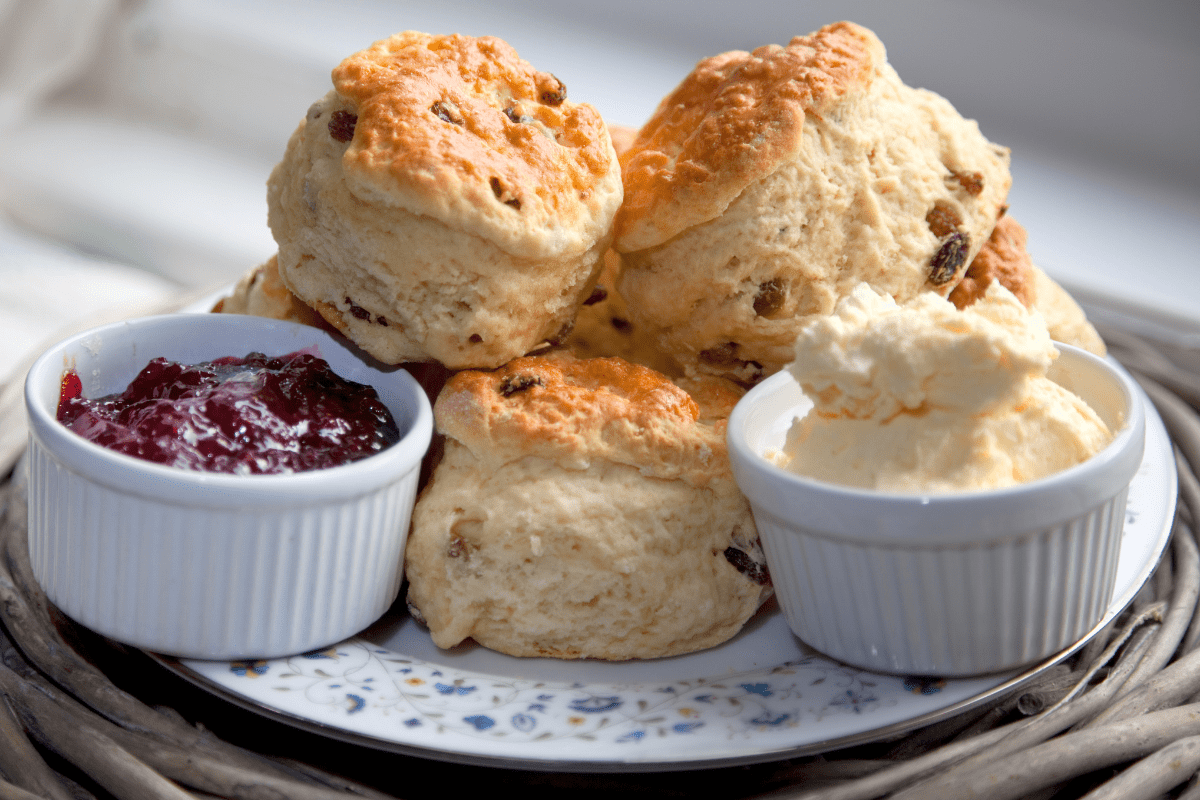From the rugged coastlines to the rolling countryside, traditional Cornish foods tell the story of a proud people who have crafted extraordinary dishes from simple, honest ingredients.
At Trewithen Dairy, we’re passionate about preserving these culinary traditions that have shaped Cornwall’s identity for centuries. Whether you’re a local looking to rediscover your roots or a visitor eager to experience authentic Cornish cuisine, these eleven traditional Cornish foods offer a delicious journey through our county’s rich heritage.
Table of Contents
What Are Traditional Cornish Foods?
Traditional Cornish foods are the authentic dishes and culinary creations that have been passed down through generations in Cornwall, England’s most south-westerly county.
At their heart, traditional Cornish foods are characterised by their simplicity, substance, and connection to the land or sea. Many originated as practical meals for Cornwall’s working communities – from the famous Cornish pasty that sustained miners deep underground, to the indulgent cream tea that showcases the county’s exceptional dairy heritage.

The Rich History Behind Cornwall’s Culinary Heritage
These time-honoured Cornish recipes reflect Cornwall’s unique geography, maritime heritage, and agricultural traditions, often featuring locally sourced ingredients like fresh seafood, rich dairy products, and hearty vegetables that thrive in the county’s mild climate.
Traditional Cornish foods also reflect the county’s Celtic roots and its position as a gateway between England and the wider Atlantic world, creating a cuisine that’s both distinctly Cornish and beautifully diverse.
From sweet treats like saffron cake to savoury classics like stargazy pie, these traditional foods continue to define Cornwall’s culinary identity and offer visitors an authentic taste of our remarkable county’s heritage.
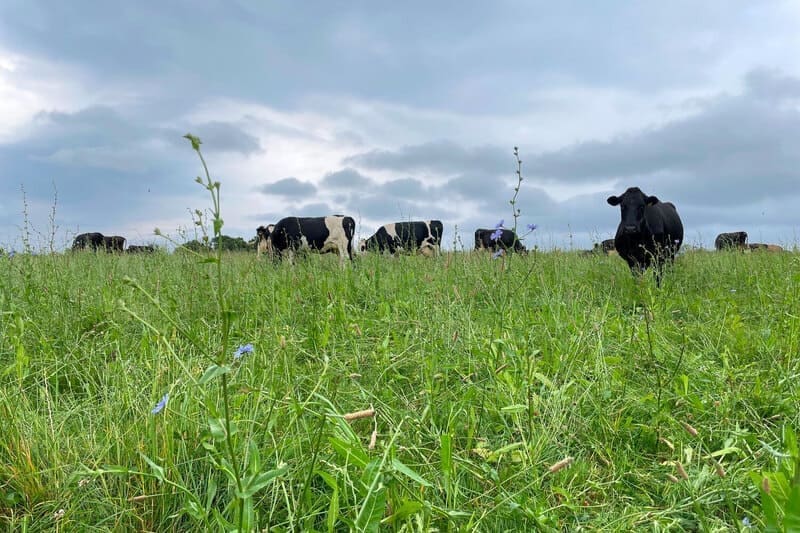
11 Must-Try Traditional Cornish Foods
From hearty miners’ meals to delicate cream teas, Cornwall’s culinary offering has sustained and delighted families for generations. These eleven traditional Cornish foods represent the very best of Cornish, each with its own fascinating story and deep connection to the county’s rich cultural tapestry.
1. Cornish Pasty – Cornwall’s Most Famous Export
The iconic Cornish pasty, with its distinctive crimped edge and golden pastry, has been Cornwall’s signature dish since the 13th century. Originally created as a portable meal for tin miners, this hearty pastry contained beef, potato, swede, and onion, wrapped in a robust pastry case that could be eaten with dirty hands. Today, the authentic Cornish pasty holds Protected Geographical Indication status, ensuring only pasties made in Cornwall using traditional methods can bear the name (not from anywhere else!).
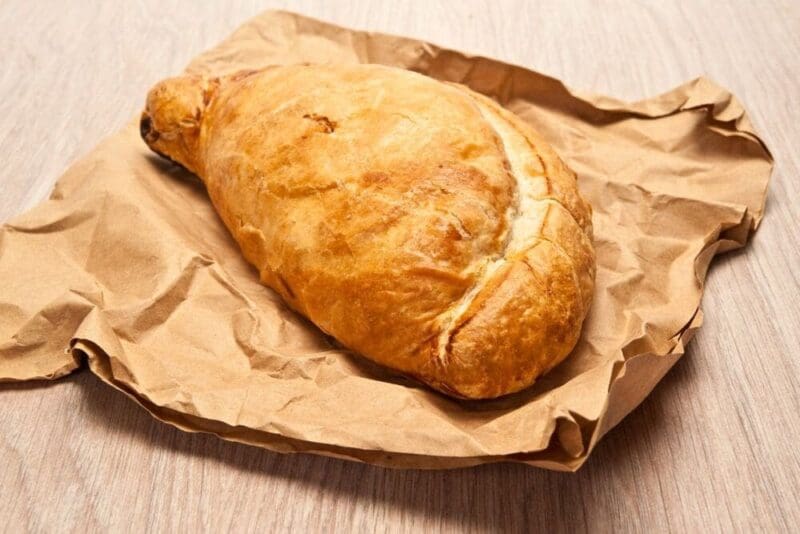
2. Cornish Clotted Cream – The Crown Jewel of Cornish Dairy
World-famous Cornish clotted cream has been made using traditional methods for over 600 years. This luxuriously thick, golden-crusted cream is created by slowly heating rich Cornish milk until the cream forms a distinctive golden surface. Essential to any proper Cornish cream tea, it’s traditionally served with scones and jam, and represents the pinnacle of Cornwall’s exceptional dairy heritage.
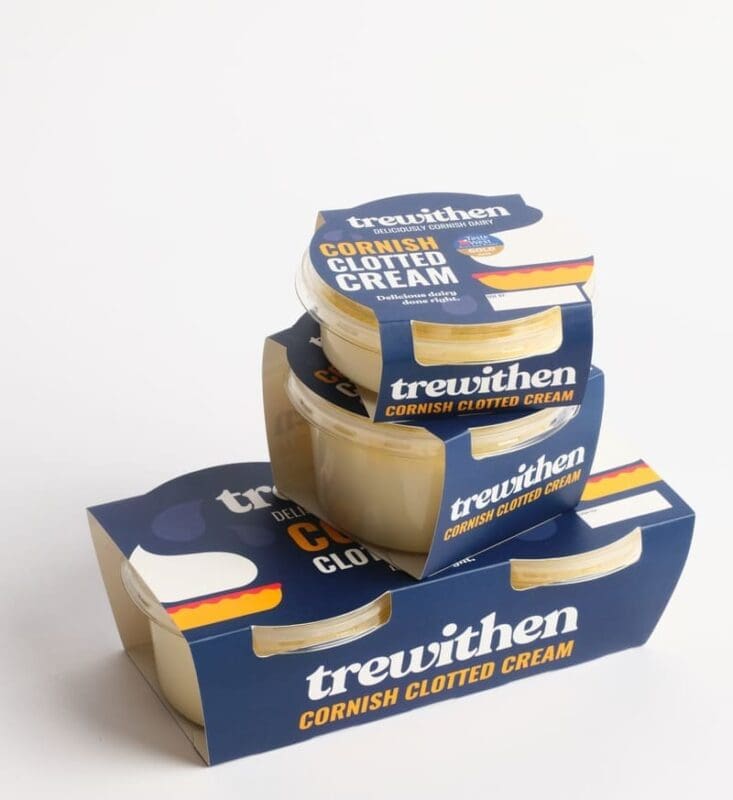
3. Cornish Yarg – The County’s Signature Cheese
Despite its ancient-sounding name, Cornish Yarg by Lynher Dairies is actually a relatively modern creation, first made in the 1980s using a 13th-century recipe. This unique cheese is wrapped in wild nettle leaves, which create its distinctive appearance and contribute to its fresh, lemony flavour. The nettles form a natural rind that protects the creamy interior, making Yarg one of Britain’s most recognisable artisan cheeses.
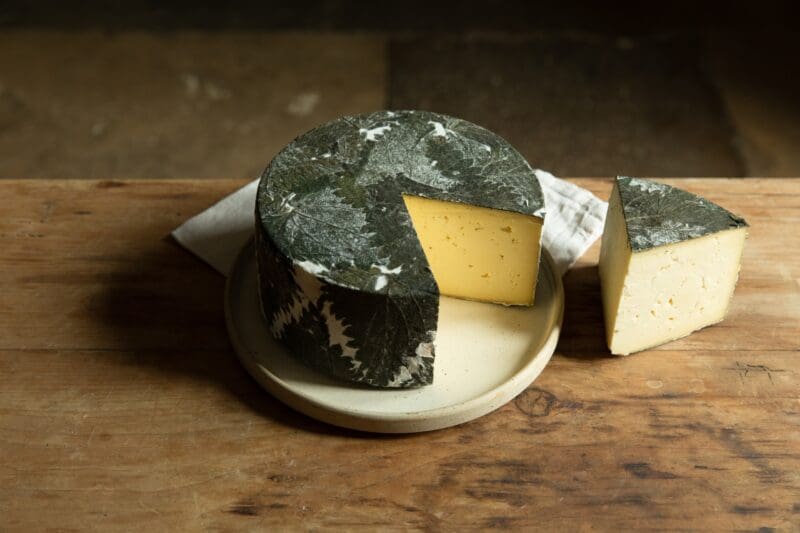
4. Saffron Cake – Cornwall’s Golden Treasure
This rich, golden cake has been a Cornish tradition since medieval times, when saffron was traded through Cornwall’s ports. The precious spice gives the cake its distinctive colour and delicate flavour, while currants and candied peel add sweetness. Often called “saffron bread” or “revel buns,” in the South West, this treat was traditionally baked for special occasions and celebrations.
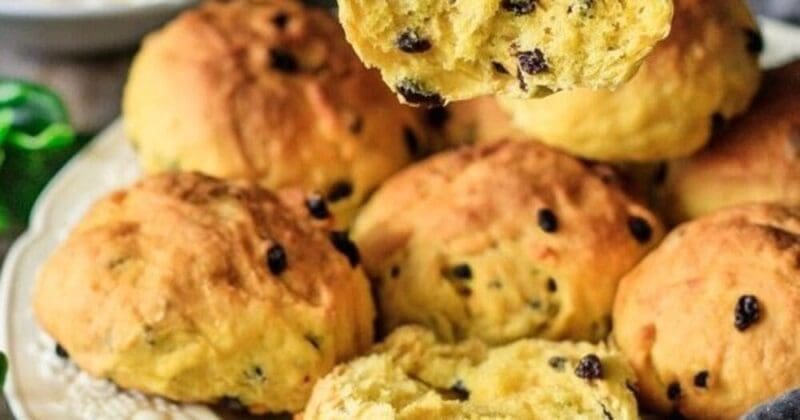
5. Cornish Fairings – Crispy Ginger Biscuits
These thin, crispy ginger biscuits originated in the 19th century and were traditionally sold at Cornwall’s local fairs and markets. Made with ginger, cinnamon, golden syrup and cornish salted butter, Cornish fairings have a distinctive snap and warming spice that makes them popular with both locals and visitors. They remain a beloved teatime treat throughout Cornwall.
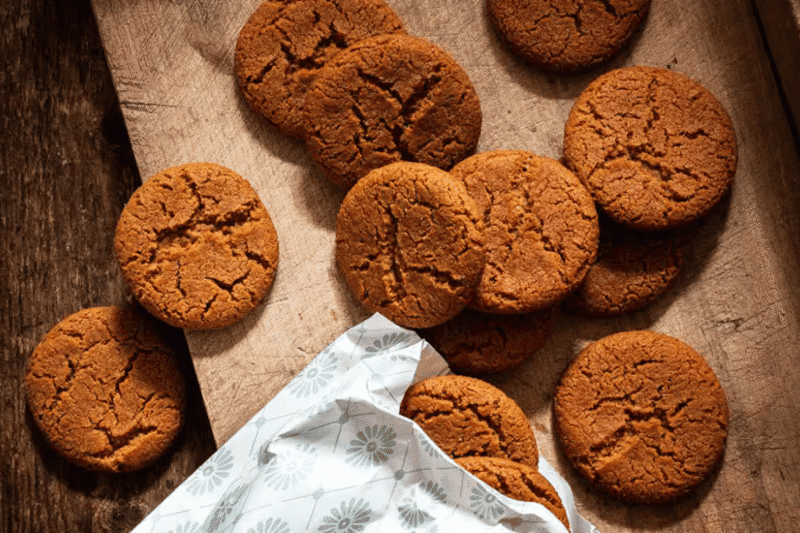
6. Stargazy Pie – The Legendary Fish Pie
Perhaps Cornwall’s most visually striking dish, stargazy pie features whole pilchards with their heads poking through the pastry crust, appearing to “gaze at the stars.” This traditional dish from Mousehole commemorates the legendary fisherman Tom Bawcock, who supposedly saved the village from starvation by braving a storm to catch fish. It’s still ceremonially eaten on December 23rd each year.
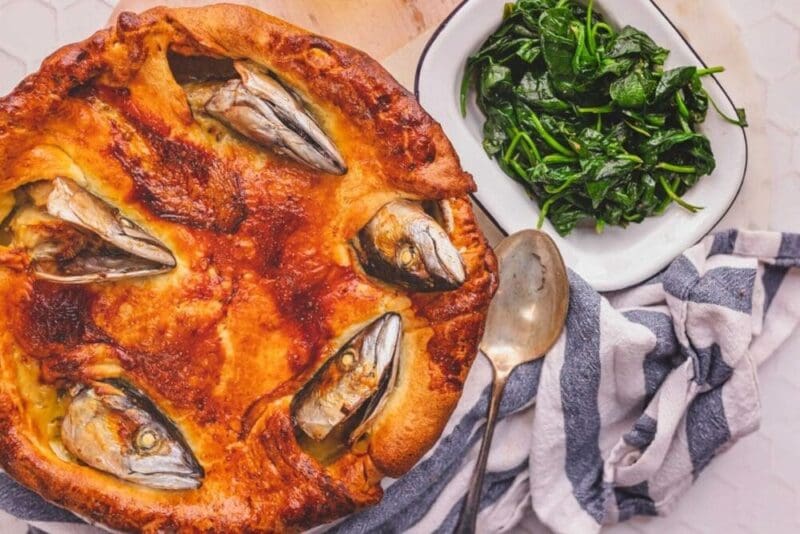
7. Cornish Heavy Cake – The Miners’ Sustenance
This dense, fruit-filled cake was a staple food for Cornish miners and farm workers who needed sustaining meals during long working days. Made with flour, lard, currants, and sugar, heavy cake lives up to its name with its rich, substantial texture. It was designed to provide lasting energy and could be easily carried in a worker’s pocket or lunch tin.
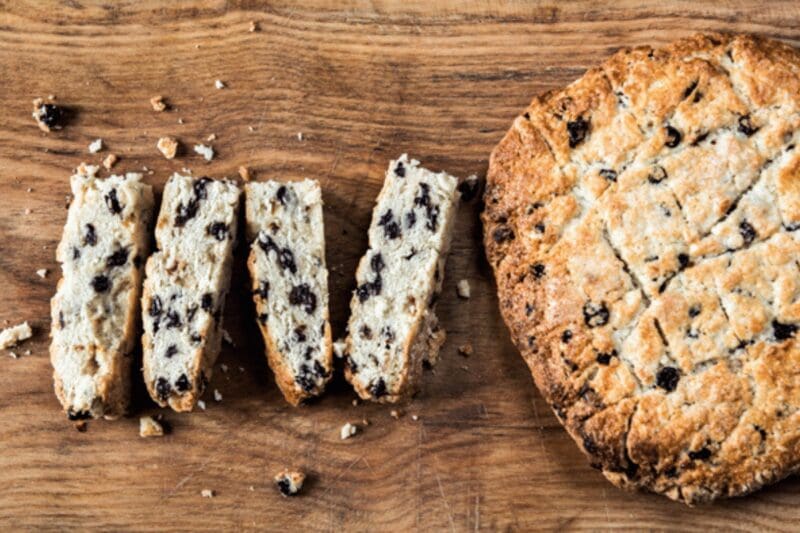
8. Cornish Splits – The Perfect Cream Tea Base
These soft, sweet bread rolls are Cornwall’s traditional foundation for cream teas, predating the more commonly known scone. Cornish splits are yeasted breads that are split open and filled with jam and clotted cream. Their light, airy texture provides the perfect contrast to rich Cornish clotted cream, making them an essential part of any authentic Cornish afternoon tea.
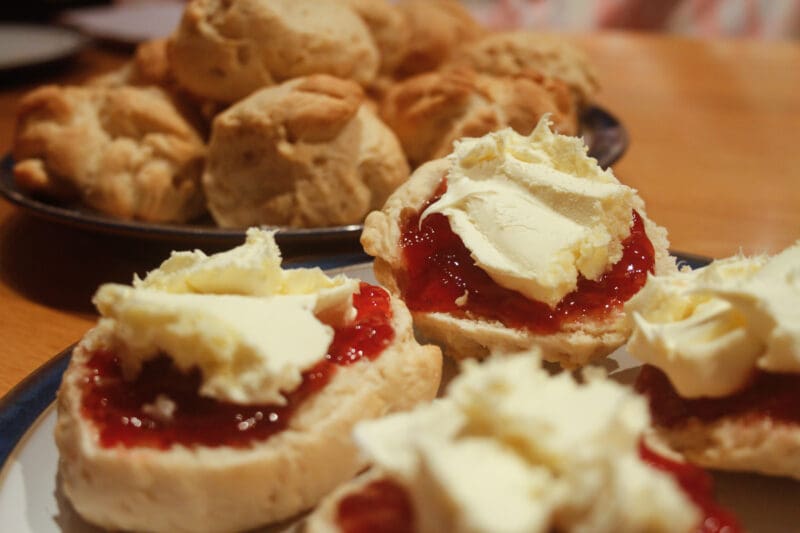
9. Hevva Cake – The Fisherman’s Celebration
This traditional cake was baked to celebrate successful pilchard catches in Cornwall’s fishing villages. The name comes from the Cornish word “hevva,” meaning “found,” which fishermen would shout when spotting shoals of fish. Made with flour, lard, currants, and sugar, then marked with a distinctive cross-hatch pattern, hevva cake represents the close connection between Cornwall’s fishing heritage and its culinary traditions.
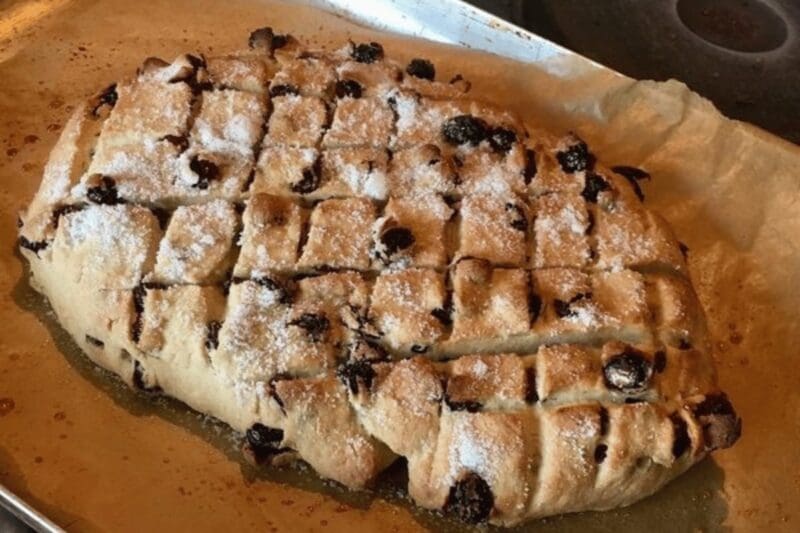
10. Cornish Fudge – Sweet Seaside Tradition
Cornwall’s fudge-making tradition dates back to the Victorian era when it became a popular seaside treat. Made with local butter, cornish cream, and sugar, Cornish fudge is renowned for its smooth, creamy texture and rich flavour. Traditional varieties include vanilla, chocolate, and clotted cream fudge, with many Cornish confectioners still using time-honoured recipes passed down through generations.
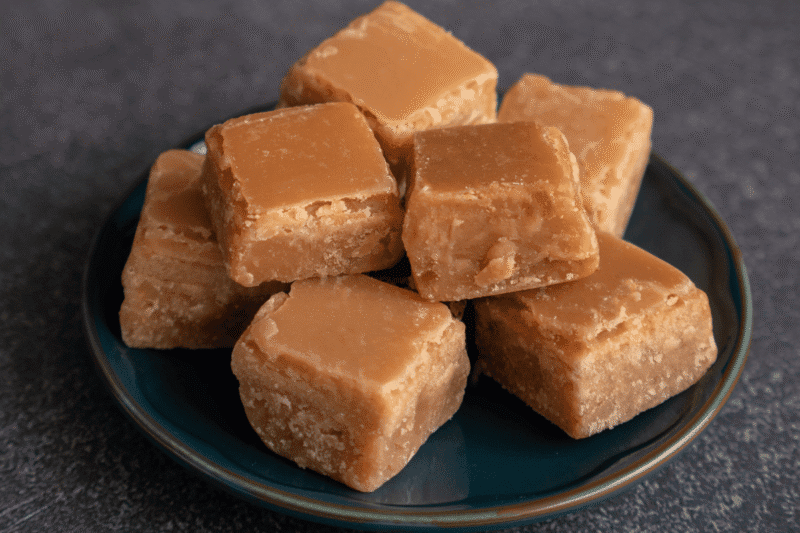
11. Cornish Mead – Ancient Honey Wine
One of Cornwall’s oldest alcoholic beverages, mead has been produced in the county since Celtic times. Made from fermented honey, water, and sometimes herbs or spices, Cornish mead reflects the county’s long tradition of beekeeping. This golden, sweet wine was once considered a drink of celebration and ceremony, and today’s Cornish mead makers continue to honour these ancient brewing traditions.
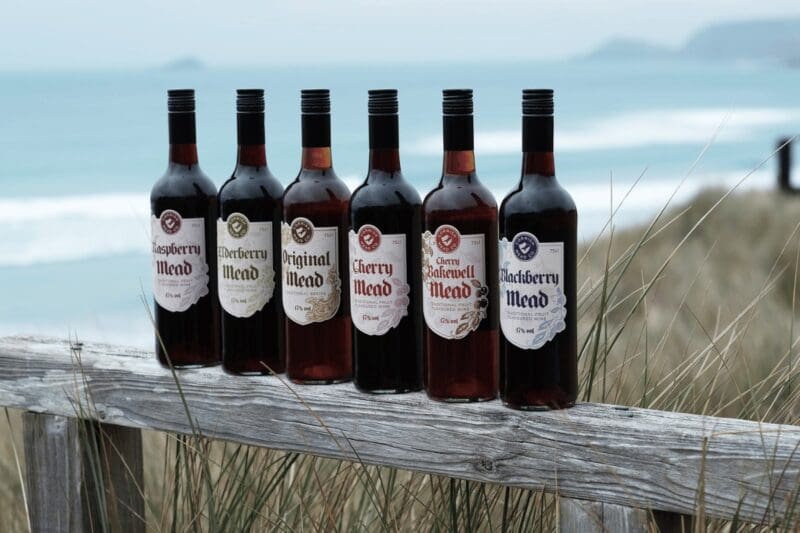
How to Experience Traditional Cornish Foods Today
Whether you want to try Cornish food to conjure nostalgia, or you’re looking for traditional Cornish foods to try on St Piran’s Day, trying authentic traditional Cornish foods has never been easier. From bustling farmers’ markets to cosy tearooms, Cornwall offers countless opportunities to taste these culinary treasures exactly as they were meant to be enjoyed.
Best Places to Find Authentic Cornish Foods
Cornwall’s vibrant food scene celebrates traditional cuisine across the county, from bustling market towns to picturesque coastal villages. Local farmers’ markets in towns like Truro, St Austell, St Ives, and Falmouth showcase authentic Cornish producers, where you can sample everything from fresh Cornish Yarg to homemade saffron cake directly from the makers themselves.
For the ultimate traditional experience, seek out genuine Cornish cream tea establishments throughout Cornwall, where proper etiquette dictates jam first, then clotted cream on your splits or scones. Many working farms across Cornwall also offer farm shops and cafés where you can taste fresh dairy products and traditional cakes while supporting local producers.
During summer months, many coastal towns host food festivals that celebrate traditional Cornish cuisine, providing perfect opportunities to sample multiple authentic dishes in one location.
Creating Traditional Cornish Dishes at Home
Bringing the taste of Cornwall to your own kitchen is wonderfully rewarding, and many traditional Cornish recipes use simple, accessible ingredients that can be sourced from quality local suppliers. The key to authentic flavours lies in using the finest ingredients possible – use our high-quality Cornish butter, fresh cream, and traditional spices to recreate these beloved dishes.
For those ambitious enough to attempt a traditional Cornish pasty, success depends on creating a robust shortcrust pastry that can hold its shape and crimping the distinctive edge properly. The filling should be simple – quality beef skirt, potato, swede, and onion, seasoned well and kept chunky to honour the traditional texture that sustained generations of Cornish workers.
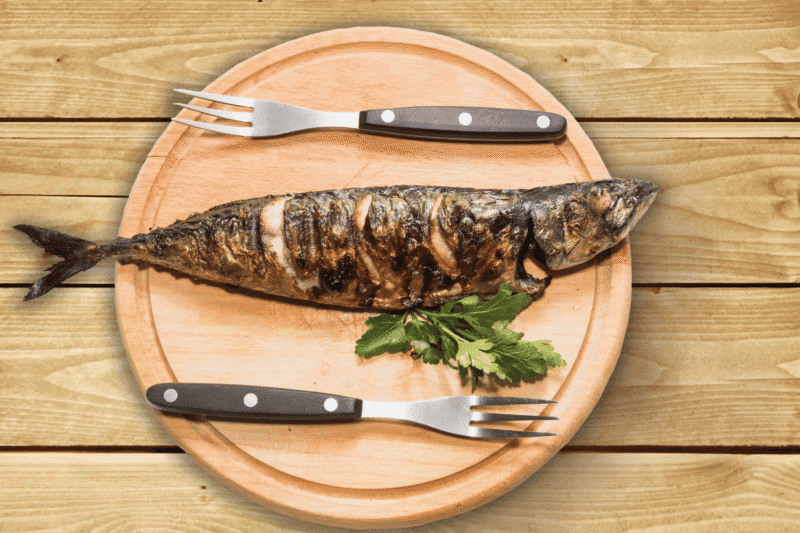
The Future of Traditional Cornish Foods
As Cornwall continues to evolve and attract new generations of food lovers, the county’s traditional culinary heritage faces both exciting opportunities and important challenges. The future of these beloved dishes depends on striking the perfect balance between preserving authentic recipes and techniques while embracing innovation that ensures these foods remain relevant and accessible for generations to come.
Preserving Culinary Heritage
Cornwall’s commitment to protecting its food traditions has never been stronger, with organisations like the Cornwall Food and Drink Association working tirelessly to document and preserve authentic recipes before they’re lost to time.
Local food historians and heritage groups are actively collecting traditional recipes from elderly residents and family archives, creating comprehensive databases that future generations can access and learn from.
Modern Innovation While Honouring Tradition
Today’s Cornish food producers are proving that innovation and tradition can work hand in hand to create exciting new possibilities while respecting the essence of traditional recipes.
Modern dairy technology allows us here at Trewithen Dairy to create exceptional clotted cream with consistent quality while maintaining the traditional slow-heating methods that give it its distinctive character. These advances help traditional Cornish dairy products reach wider markets while preserving the artisanal qualities that make them special.
Digital platforms and social media are playing an increasingly important role in preserving and sharing traditional recipes, with food bloggers and heritage enthusiasts creating online communities where traditional cooking knowledge can be exchanged and celebrated. These modern tools are helping traditional Cornish foods find new audiences while maintaining their authentic character and cultural significance
Conclusion
Cornwall’s traditional foods embody the spirit, resilience, and creativity of generations who have called this remarkable county home. From the humble Cornish pasty to the luxurious clotted cream that graces afternoon tea tables worldwide, these eleven traditional dishes tell the story of a people deeply connected to their land and sea.
At Trewithen Dairy, we’re proud to play our part in this delicious legacy, crafting traditional Cornish dairy products that honour the past while delighting present and future generations. Whether you’re savouring a proper cream tea in a Cornish village or recreating these time-honoured recipes at home, you’re participating in a living tradition that connects us all to Cornwall’s extraordinary culinary heritage.
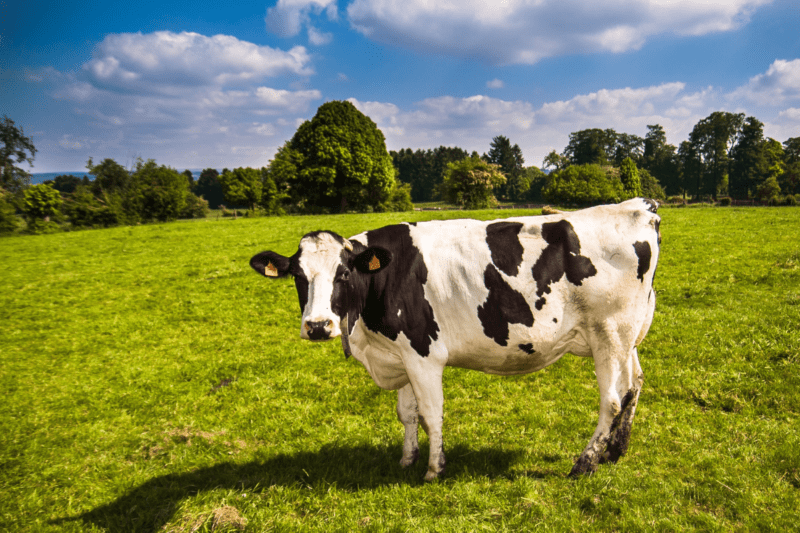
Frequently Asked Questions About Traditional Cornish Food
What savoury food is Cornwall famous for?
The Cornish pasty is undoubtedly Cornwall’s most famous traditional food. This iconic pastry, filled with beef, potato, swede, and onion, has been Cornwall’s signature dish since the 13th century and now holds Protected Geographical Indication status, meaning only pasties made in Cornwall using traditional methods can be called “Cornish pasties.”
What is the difference between Cornish clotted cream and regular cream?
Cornish clotted cream is made by slowly heating rich local milk until a golden crust forms on top. This traditional process, used for over 600 years, creates a much thicker, richer cream with a distinctive texture and slightly sweet, nutty flavour that’s completely different from regular double cream or whipped cream.
What makes Cornish food unique?
Cornish food is unique because it reflects the county’s distinctive geography, maritime heritage, and Celtic roots. The cuisine emphasises fresh local ingredients like seafood from Atlantic waters, exceptional dairy products from Cornwall’s lush pastures, and traditional recipes that have been passed down through generations of mining, fishing, and farming communities.
Can you buy authentic Cornish food outside of Cornwall?
Yes, many authentic Cornish foods can be purchased outside Cornwall through speciality food retailers, online stores, and some major supermarkets.
What is the traditional drink of the Cornish?
The traditional drink of Cornwall is mead, an ancient honey wine that has been produced in the county since Celtic times. Made from fermented honey, water, and sometimes herbs or spices, Cornish mead was historically considered a celebratory drink used for ceremonies and special occasions such as St Piran’s Day.
What is a traditional Cornish breakfast?
A traditional Cornish breakfast typically features locally sourced ingredients including Cornish bacon, eggs, black pudding, and sometimes fresh fish like mackerel or pilchards from local waters. It might also include fried potatoes, baked beans, and grilled tomatoes, similar to a full English breakfast but with distinctly Cornish touches. Historically, miners and farm workers would start their day with hearty fare like heavy cake or splits with butter, while coastal communities often included fresh fish. Today’s Cornish breakfast often showcases local produce like Cornish butter, artisan sausages from local farms, and sometimes even a slice of saffron cake alongside more conventional breakfast items.
